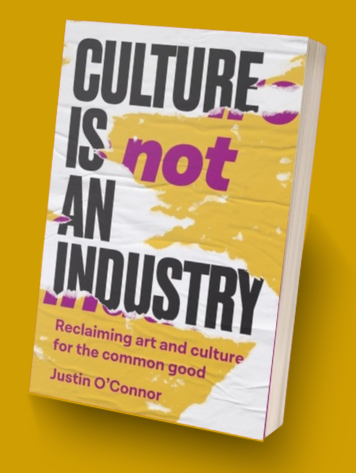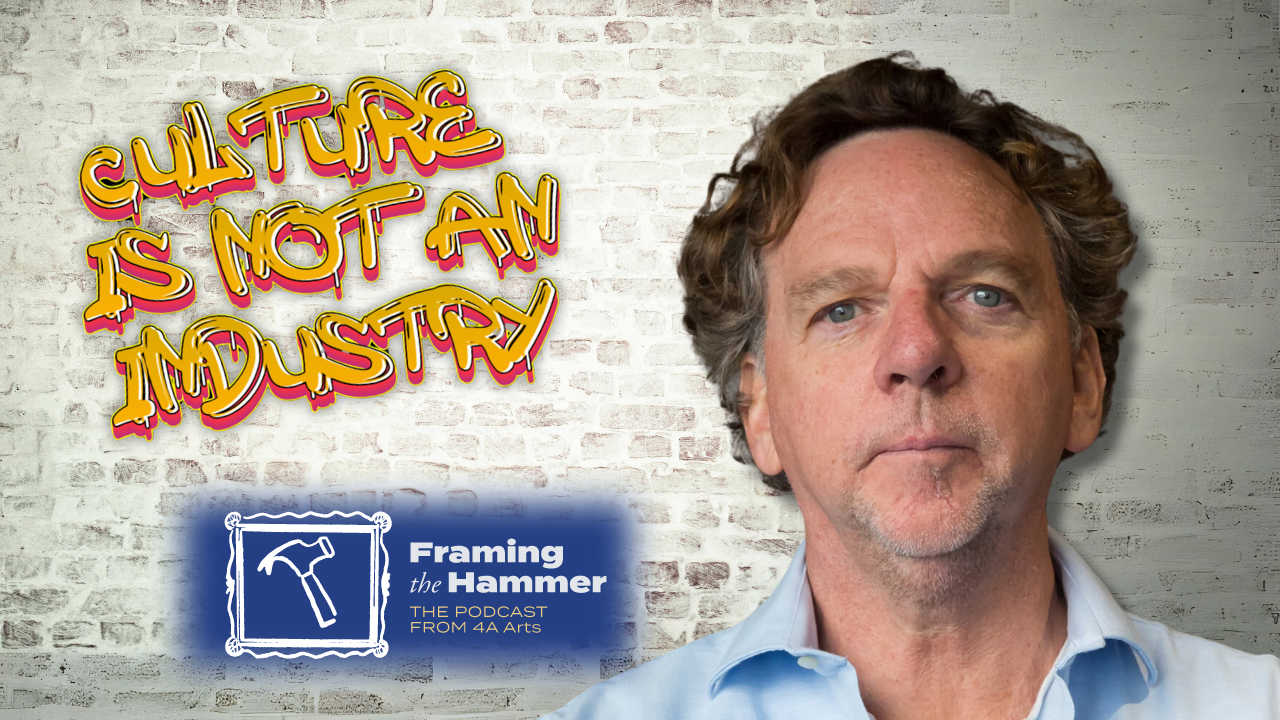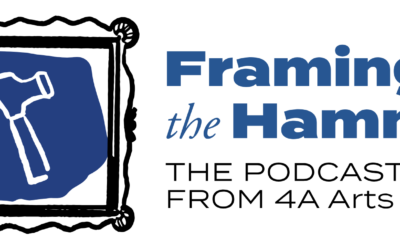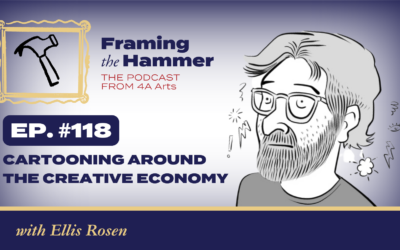Professor Justin O’Connor of the University of South Australia’s Creative Economy Department joins us for episode 17 of Framing the Hammer to discuss the ideas behind his new book, Culture is Not an Industry

Professor O’Connor’s career studying the “creative economy” dates back to his time as a researcher for the University of Manchester. During that period of the mid-to-late 1990’s, the Tony Blair/New Labour Party era doubled down in capitalizing upon British art and creativity as an industry. According to Professor O’Connor, New Labour defined creative industries as a “new economic center based on [the power of] creativity whose major contribution to society is the growth in wealth and jobs they produce.”
The “creative industry” concept took root in many parts of the world, but as Professor O’Connor discusses, has negatively distorted the world’s narrative around arts, culture, design, and craft.
Instead of reducing culture to an economic measure for financial gain and growth, Professor O’Connor endorses the idea of a Wellbeing Economy in which the arts play a major role in helping people live more with greater mental, physical, communal, and environmental health. He states that arts and culture foster spaces for humanity to examine fears, values, and imagine a common future. And through that effort, a movement should emerge to prioritize human wellbeing over purely economic considerations.

We cannot live a decent life together in society if we don’t have some essential social and cultural infrastructure in place.
O’Connor addresses our increasing political polarization and its effects on culture funding: “Advocacy works best in situations where basic values are broadly shared. Then issues can be raised and agendas pushed in a melee of healthy civil debate. When that consensus breaks down, when there’s no common value ascribed to arts and culture in the first place, advocacy breaks down too. Health and education need no advocates. But when art and culture need to advocate for their very existence, they are already in deep trouble.”
Aside from his most recent work, the provocative and compelling Culture Is Not an Industry, O’Connor is also the co-author of “Culture as an objective for and a means of achieving a Wellbeing Economy,” where he argues that “…culture is what makes lives worth living and it therefore merits equal consideration to other outcomes. However…a transition to a Wellbeing Economy is likely to require a flourishing culture.”

...when art and culture need to advocate for their very existence, they are already in deep trouble.
When defining cultural infrastructure, O’Connor quotes Princeton Professor of Engineering Deb Chachra‘s book, How Infrastructure Works: Inside the Systems That Shape Our World, to describe how culture, like infrastructures such as the metro or tap water, is that which nobody takes any notice of – until it’s no longer there.
In the conversation, Professor O’Connor joked about this “Cool Britannia” era when Tony Blair famously pulled out his guitar and Bill Clinton played his saxophone.
During our discussion, Professor O’Connor references a few cultural touchstone moments in his life. Virginia Woolf’s To the Lighthouse inspired him as a youngster to think big things beyond “boring Charles Dickens.”
To read a transcript of the podcast interview, please click here.





